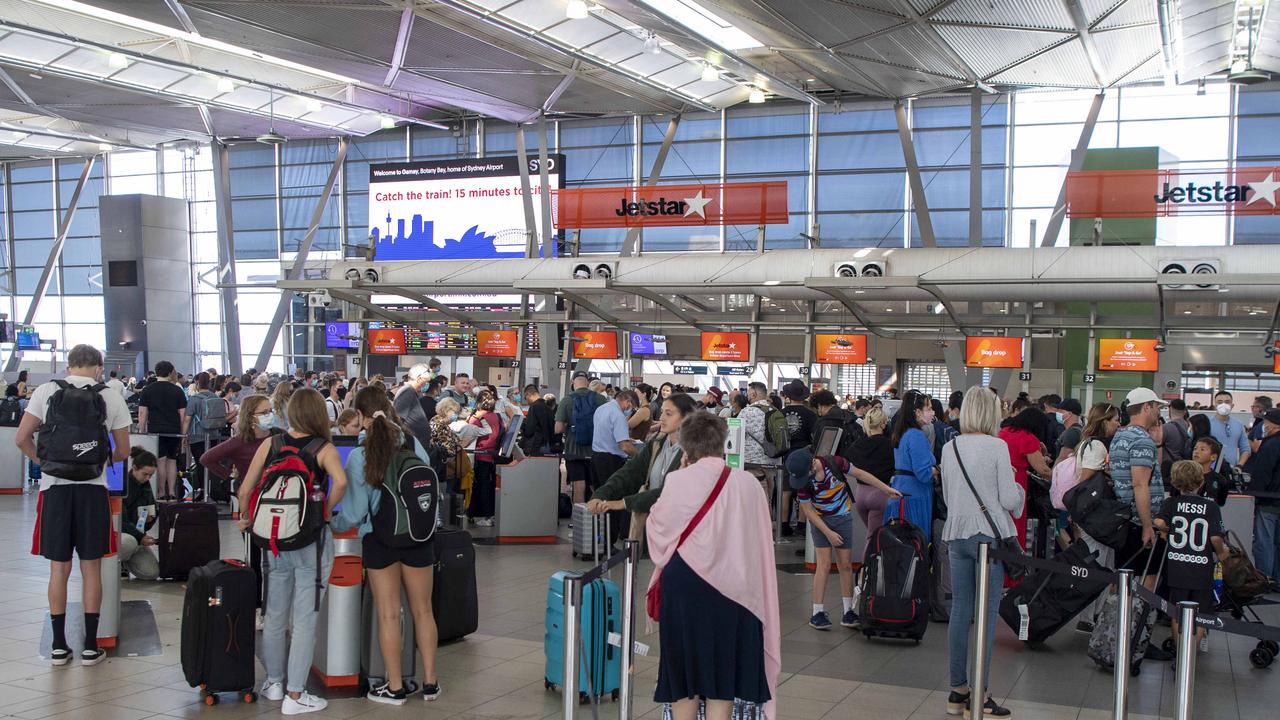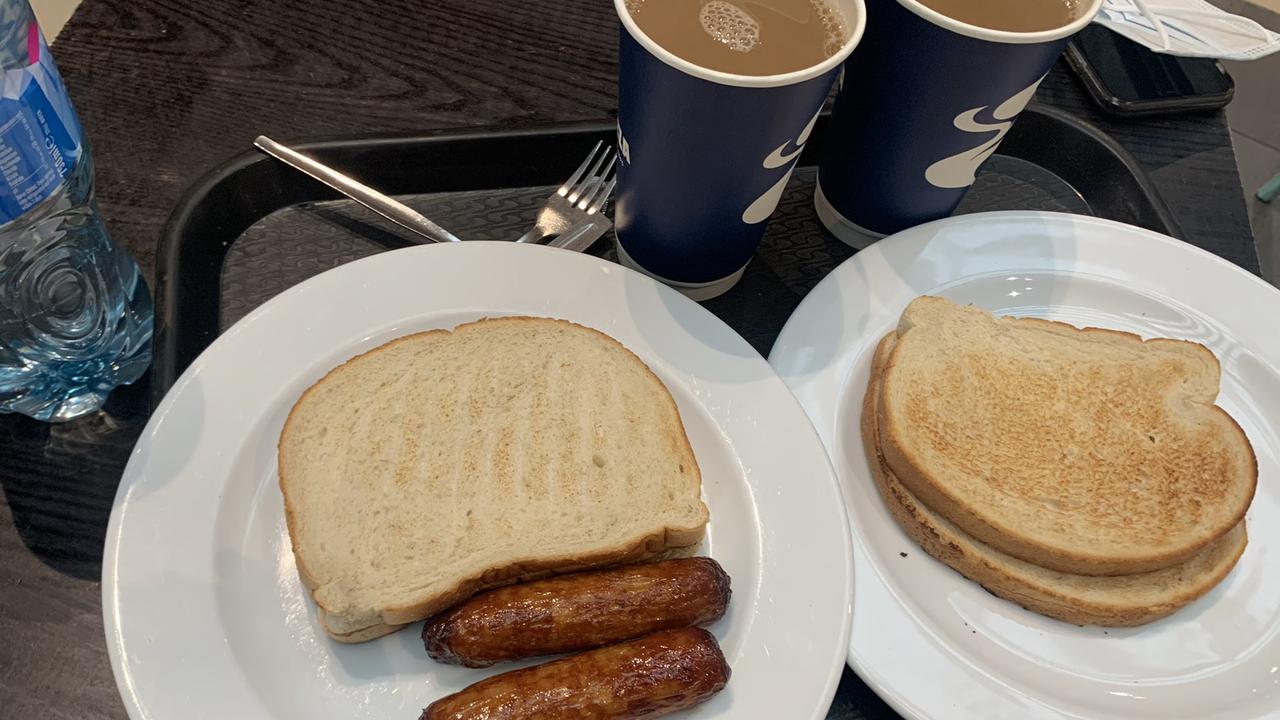Omicron Christmas: What happens if I catch Covid in NSW, Victoria, Queensland, WA, SA
While Covid cases are on the rise again, a top epidemiologist says there are other figures that could better predict the return of restrictions.
Travel News
Don't miss out on the headlines from Travel News. Followed categories will be added to My News.
With Omicron threatening state border closures, travel restrictions and rules around social gatherings, it may feel like your Christmas plans are at the mercy of unpredictable Covid cases.
And with cases in NSW and Victoria once again rising along with the arrival of a new variant on the scene, there are growing fears Australia could soon be subjected to a new wave of cases.
Speaking to news.com.au, the Dean of the School of Health Sciences at the Swinburne University of Technology, Professor Bruce Thompson, said while Covid cases are increasing, it’s important to remember Australia’s population is also highly vaccinated.
As of December 14, 89.5 per cent of Australians over 16 are double jabbed.
“The good thing about it is that we’re going into Christmas very well vaccinated so it’s less likely for us to give it to somebody else,” he said.
“But also if we do contract the virus, the severity of the disease is a lot less too.”
Figures more important than cases
While cases may be rising in NSW and Victoria, Prof Thompson says the more important figures that could bring back restrictions are hospitalisations, ICU admissions and deaths. Looking at these numbers, Prof Thompson said that although they have “slightly increased”, they’re unlikely to force the introduction of new restrictions.
“Even if Covid cases increased a lot, that would be fine if no one got sick from it,” he said.
“On top of that you’d also develop antibodies, so you’re less likely to get (it) next time but it won’t be good if people start landing in intensive care or dying, and those rates start going up.”
States and territories which have had less exposure to Covid, like WA or Queensland, will likely also be more reactive to rising hospitalisations and ICU admissions.
Prof Thompson said these jurisdictions are almost a “victim of their own success”, as the healthcare system in states like NSW and Victoria is now better at managing cases.
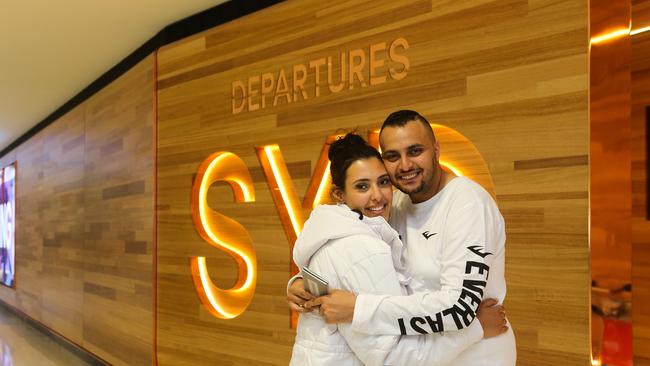
Prof Thompson said it’s “not unreasonable” that cases would likely jump as a result of increased gatherings, but people worried about missing Christmas can take precautions to avoid becoming a close contact or catching Covid.
These include ensuring you are vaccinated, wearing masks in spaces like supermarkets, limiting your socialising “just a little” and being careful about hand washing.
“What you want to do is decrease the opportunity of you coming in contact with the virus. You don’t necessarily need to stop everything, just be sensible and you’ll be fine,” he said.
While Prof Thompson said common sense, hygiene and reducing possible exposure to the virus will help you avoid catching Covid or becoming a close contact, here are the rules currently in place in each state and territory.
NSW
What happens if I Get Covid?
People who have Covid-19 must self-isolate at home until they’re medically cleared.
This means you must remain separated from others and not leave your home or accommodation unless it’s to receive urgent medical care or in an emergency.
What happens if I’m a casual or close contact of someone with Covid?
Under changes made on Wednesday, fully vaccinated close contacts will only have to isolate until they receive a negative PCR test result.
However, household close contacts and close contacts in any other settings identified by NSW Health will still be required to isolate for seven days and comply with PCR testing requirements - which means getting a test on days one and six.
Casual contacts can exit isolation after they get a negative test result.
Protocols for interstate travellers:
Although there are no requirements for entry declaration forms, there are rules for non-NSW residents who enter NSW and have visited an area affected by Covid in the 14 days prior to their arrival. This includes:
Affected areas: Complete a NSW entry declaration 24 hours prior to entry, or on entry.
Areas of concern: Complete a NSW entry declaration, stay at your residence until 14 days have elapsed since you were at the area of concern (or if that area of concern is revoked).
You may, however, leave your residence if you have a “reasonable excuse”. This includes to access food, services, medical care, or to avoid injury, travel for work, childcare or parenting, to exercise or move home.
Place of high concern: Close contacts may not enter NSW, while fully-vaccinated casual contacts can enter if you returned a negative Covid test and self-isolate until seven days has elapsed from when you visited the place of high concern.
People over the age of 16 travelling into NSW from Victoria for holiday and recreation must also be fully vaccinated.
Victoria
What happens if I Get Covid?
Victorians who test positive to Covid-19 must quarantine at home for the 10 days after you test positive. The people you live with must also quarantine for seven days (if fully vaccinated) or 14 days if they’re only partially or unvaccinated.
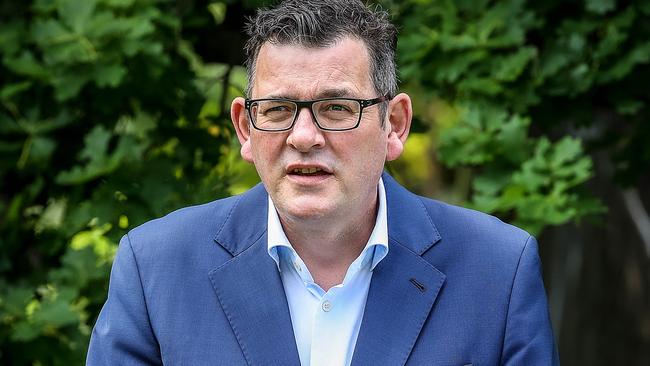
What happens if I’m a contact of someone with Covid?
In Victoria, contacts are determined by the context in which you’ve interacted with a confirmed Covid case. This includes:
Social, workplace or education contacts (confirmed Covid case who doesn’t live with you): The Department of Health strongly recommends social contacts to get a PCR test and isolate until you receive a negative result.
Close contacts: This is similar to household contacts. The isolation period is seven days for fully vaccinated people and 14 days for partially or unvaccinated contacts.
Other: The Department of Health may also contact you if you’ve attended a high-risk public venue with someone with Covid-19. If so, you will have to follow their advice provided, which may include quarantine, monitoring for symptoms or a PCR test.
Protocols for interstate travellers:
Unless they’ve been overseas in the past fortnight, domestic travellers can enter Victoria regardless of vaccination status. No quarantine measures or travel permits apply.
Queensland
What happens if I get Covid?
People who are recovering from Covid will need to remain in isolation until they’re informed by a registered nurse or medical practitioner that their period of isolation has ended.
What happens if I’m a casual, secondary or close contact of someone with Covid?
Close contacts: Must immediately begin quarantine for 14 days from the day of exposure, complete a close contact form and seek out a test as soon as possible.
Secondary contacts: The term given to anyone who resides at the residence of a close contact, secondary contacts must also immediately undertake a Covid test and quarantine in the 14 days after exposure.
Casual contacts: Immediately get tested and quarantine until they receive a negative result. If so, you are asked to continue monitoring for symptoms.
Low-risk contact: Get tested at your earliest convenience and monitor for symptoms. You do not need to isolate while awaiting their result.
From January 1, these rules will be relaxed so casual contacts will only require quarantine until they return a negative test. The isolation period for fully vaccinated close contacts will also be reduced from 14 to seven days, pending a negative test result on the fifth day. From days eight to 14, they will also be required to wear a mask when outside of their homes and must avoid high-risk settings, like hospitals.
Protocols for interstate travellers:
As of Monday, December 13, border restrictions were eased for interstate travellers entering Queensland.
Those entering from a hotspot must be fully vaccinated, apply for and receive a Queensland Entry Pass, return a negative PCR test 72 hours prior to their arrival in Queensland and undertake to get a PCR test on Day 5, or as close to Day 5 as practical, after arriving in Queensland.
South Australia
What happens if I Get Covid?
South Australians who are diagnosed with Covid are asked to isolate at home and will be given a home care kit, which will include a thermometer, finger oxygen saturation monitor and link with the ‘iCCnet monitoring system’ so the Covid Response Care Team can closely monitor their health daily.
They can leave isolation once given the all clear from the Response Care Team.
What happens if I’m a casual or close contact of someone with Covid?
Close contacts of a confirmed case will be notified by SA Health. Once notified, they must remain in contact until the date provided to them by the health body. Generally this period is seven days for those who are fully inoculated and 14 days for others.
Fully vaccinated casual contacts will only have to isolate until they return a negative test result.
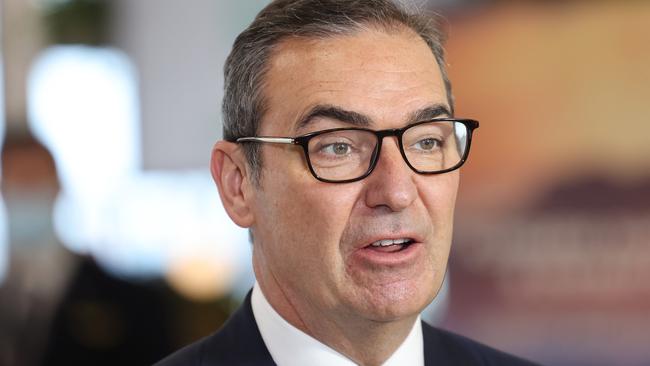
Protocols for interstate travellers:
Barring an uncontrolled Delta or Omicron outbreak, fully vaccinated interstate travellers will not be subjected to restrictions.
Recently speaking to The Advertiser’s Sunday Mail, Police Commissioner Grant Stevens and Premier Steven Marshall pledged to keep borders open.
“People need certainty in the lead-up to Christmas, we have now provided that certainty,” Mr Marshall said.
“There will be no more statewide lockdowns; there will be no more lockouts.”
Apart from being fully vaccinated, all incoming travellers must:
– Return a negative PCR test 72 hours prior to arrival
– Complete an EntryCheck SA application 14 days prior to arrival
– Monitor for symptoms 14 days after arrival
Tasmania
What happens if I Get Covid?
Positive Covid cases will need to remain at home until the Department of Health decides you have recovered and are no longer at risk of infecting others.
What happens if I’m a casual or close contact of someone with Covid?
Primary close contacts: Once notified by Public Health, close contacts must quarantine for 14 days from the initial exposure. Testing requirements also apply.
Secondary close contacts: A close contact of a close contact, quarantine orders will differ depending on advice from Public Health.
Casual contact: Depending on the level of risk assessed by Public Health, casual contacts may be asked to isolate, quarantine until they return a negative test result (or when Public Health advises they may stop quarantining) or watch for symptoms and seek testing if they occur.
Protocols for interstate travellers:
While all travellers will need to register through the Tas e-Travel system, people who have been in a high-risk area in the 14 days prior to arrival must also return a negative PCR test in the 72 hours prior to their departure.
All unvaccinated travellers or travellers who have been in an extreme-risk area in the 14 days prior to arriving in Tasmania will need approval to enter the state.
Northern Territory
What happens if I Get Covid?
If you test positive to Covid, the NT Centre for Disease Control will contact you to advise the next steps for isolation and treatment.
What happens if I’m a casual or close contact of someone with Covid?
Close contacts are asked to quarantine for 14 days after their initial exposure and once the contact tracing team confirm they may end their quarantine period. People living in the same household as a close contact will also need to self-quarantine until the close contact receives an initial negative test result.
Casual contacts are asked to enter self-quarantine until a negative test is returned. Low risk contacts are asked to get tested and monitor for symptoms for 14 days, while people who have entered a location of concern are also asked to get tested and isolate until they return a negative result.
Protocols for interstate travellers:
All travellers entering the Northern Territory are required to fill in a Border Entry Form in the five days prior to entry, with the state also issuing additional rules for those entering from a Covid-19 red zone.
Fully vaccinated visitors will need to undertake seven days home quarantine, while unvaccinated NT residents and approved visitors coming from a red zone will need to undergo 14 days mandatory supervised quarantine.
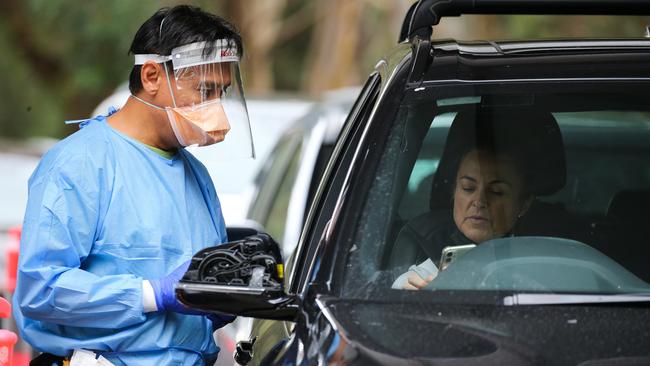
ACT
What happens if I Get Covid?
Anyone diagnosed with Covid-19 must isolate until cleared to leave by ACT Health.
What happens if I’m a casual or close contact of someone with Covid?
Regardless of vaccination status, casual and close contacts will have to complete an ACT Contact Declaration Form and get a Covid test.
Close contacts must begin quarantining immediately regardless of their test result. This period is seven days for fully vaccinated people, who are also asked to work from home from days eight to 14 and not attend a high risk setting until 14 days after their last exposure and once they’ve returned a negative test result on day 12 or 13.
Unvaccinated close contacts must isolate for 14 days since they were last exposed to Covid and return a negative test on day six and day 12 or 13.
Residents who have been listed as a casual contact must monitor for symptoms for 14 days (and get tested if they appear) and quarantine at their place of residence until they return a negative test. If the first test is done less than five days after they were exposed, they must return a second negative test on day six or later, however they don’t need to isolate while waiting for the result.
Protocols for interstate travellers:
Rules for entering the ACT also depend on whether they’ve been to a high-risk geographical area or have been a close or casual contact at an exposure location in the 14 days before entering the ACT.
While fully-vaccinated residents can travel to the ACT for any reason, they must monitor for and seek testing and isolate should symptoms arise within 14 days of being in a high-risk geographical area.
Unvaccinated residents who have been to a high-risk geographical area are required to obey stay at home orders for 14 days.
Travellers who have been listed as a casual contact must also monitor for symptoms for 14 days (and get tested if they appear) and quarantine at their place of residence until they return a negative test. People who returned their first test within five days of attending a casual contact location must also return a second negative test on day six, however, they don’t need to quarantine after the first negative test.
The rules for close contacts are a bit tougher and differ depending on circumstances. Non-ACT residents who are identified as a close contact of an exposure location are unable to enter the ACT unless they have an exemption from ACT Health. ACT residents, however, may enter the state as long as they quarantine for 14 days since attending the exposure location. They must also complete a test on day five to seven of the quarantine period and again on days 12 to 13.
Currently there are no restrictions on people entering from Western Australia or Jervis Bay.
Western Australia
What happens if I Get Covid?
People who test positive to Covid will need to remain in isolation until cleared by Public Health.
What happens if I’m a casual or close contact of someone with Covid?
With the state recording 1124 cases and nine deaths throughout the entirety of the pandemic, WA is still chasing a Covid zero strategy. Residents who have visited an exposure site are asked to get immediately tested and isolate until they receive a negative result. Close contacts of Covid cases may also have to isolate for 14 days, unless directly advised by the Department of Health.
Protocols for interstate travellers:
With one of the most strict Covid protocols in Australia, if not the world, Western Australia only just announced they will open up to fully vaccinated interstate and international travellers from February 5, 2022.
Currently only residents of states and territories marked as ‘low-risk’ (Tasmania) can enter the state. Residents from jurisdictions marked as ‘very low risk’ (Northern Territory and Queensland) can also enter if they’re fully vaccinated, self-quarantine for 14 days and return a negative Covid test within 48 hours of their arrival and on day 12 of quarantine.
Residents from the ACT and South Australia (medium-risk), NSW (high-risk) and Victoria (very high-risk) must apply for a G2G Pass or Government approval prior to arrival and follow necessary quarantine, vaccination and disclosure protocols.
Originally published as Omicron Christmas: What happens if I catch Covid in NSW, Victoria, Queensland, WA, SA




